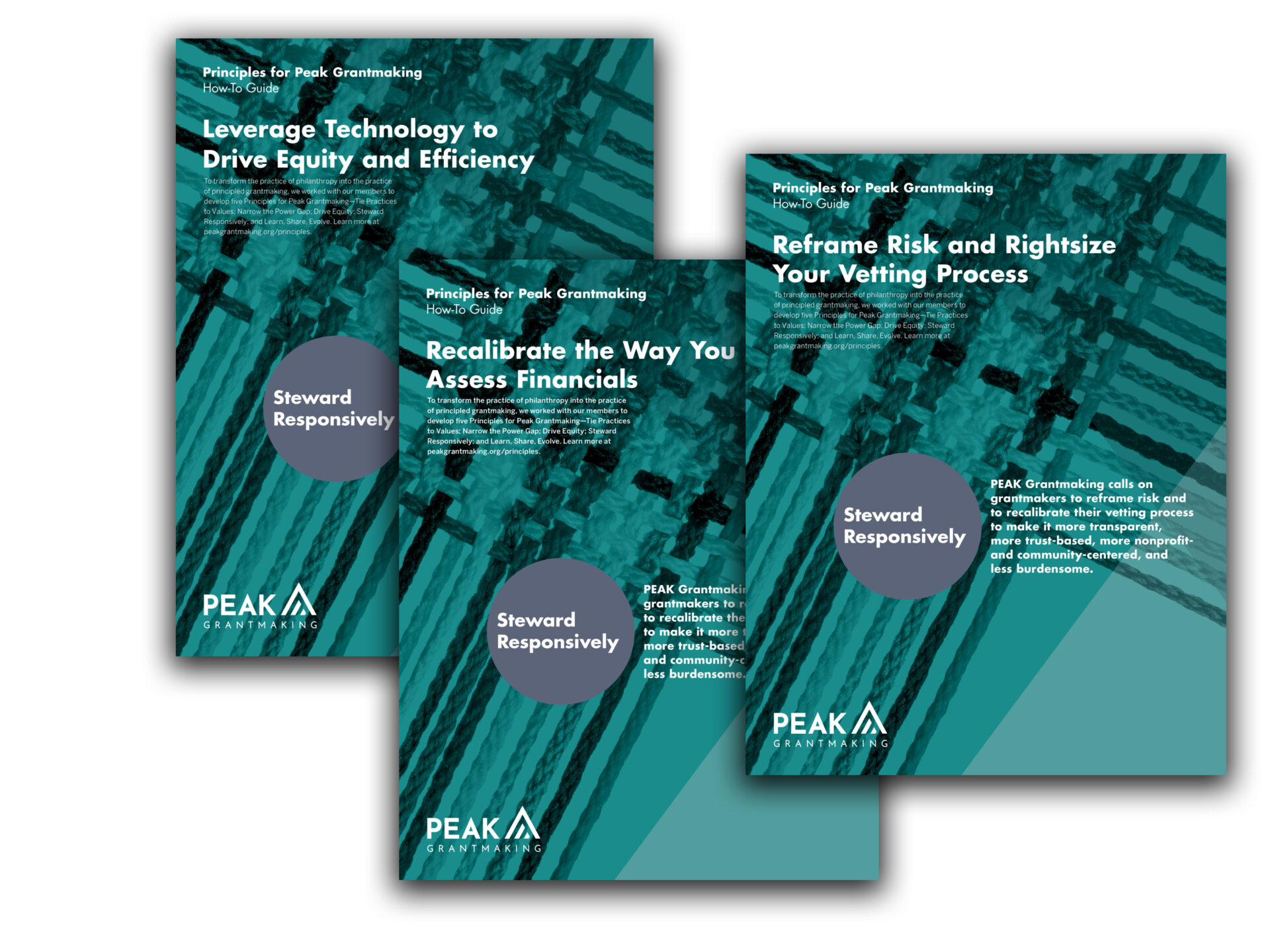Ask Dr. Streamline – Setting a Good Example: Part II

Dear Dr. Streamline,
I’m looking for examples of funders from across the country that demonstrate best practices in streamlining/simplifying their online grant application process.
Do you know of any funders who have found balance between holding grantees accountable (e.g. asking for logic models, theories of change, etc.) without making their application and/or application process overly burdensome?
Many thanks for your suggestions!
Best,
Tightrope
Dear Tightrope,
In last week’s blog, we tackled two parts of your question:
- What are some best practices in streamlining our online grant application process?
- What is the role of logic models and theories of change in holding grantees accountable?
This week, I want to address the third big question:
How do we hold grantees accountable without making the application process overly burdensome?
Let’s talk about holding grantees accountable. My first suggestion is that we find new language! Holding grantees accountable suggests that grantees aren’t to be trusted and must be forced to fulfill their end of the funding arrangement. That power imbalance is something that many funders are seeking to minimize. Your organization probably conducts due-diligence up front to find grantees that are equally committed to the mission you seek to advance and to the success of the work. You do the hard work of carefully selecting partners to get as much assurance as you can that you can trust your grantees. So… trust them, while verifying progress and trying to provide more support if needed. Perhaps a better framing is that you want to support your grantee’s progress toward mutually desired goals.
Regardless of what we call it, how do you do this without making the application process overly burdensome for grantees?
It’s reasonable for funders to want to know that funds were used for the purposes and in the manner they were intended, in the agreed-upon time-frame. To do this, most funders require grantees to predict spending (in the form of a budget) and activities and results (in the form of anticipated outcomes) up front. And the truth is, doing this thoughtfully adds a level of burden to the application and reporting process.
If this kind of tracking is important to you, here are some ideas to reduce the burden and increase the usefulness to grantees:
- Be sure measures or “metrics” are useful to the grantee: Who gets to decide what will be accomplished and how success will be gauged? Any data you track needs to be highly relevant to the grantee, not just the funder! And I encourage you to finalize your agreed-upon measures after you’ve granted funding. For bonus points, add some additional dollars to compensate your grantee for the time they spend going back and forth with you to identify metrics.
- Be sure that the measures are realistic given the amount and duration of the funding. In one year, you can expect your grantee to report back to you about what they did – their activities. But results? No. Impact does not happen as a result of a year of funding.
- Be judicious. Not all grants require formal metrics. Some funders reserve this level of “accountability” for large grants of more than $100,000 or $200,000. And in all cases, the measures tracked should be a limited number of realistic and measurable outputs or outcomes.
- Prioritize support and learning, not accountability. If a funder and grantee agree on a set of goals, they can work together to make sure they are accomplished or understand what’s in the way. How are you holding yourself accountable for providing additional support so that your grantee can get to the results you both care about? That relationship feels very different from the grantee perspective than being held accountable.
- Think about how you’ll get information – and don’t assume that grantee reports are the only way! We often assume that written reports are the way to track progress, but this isn’t necessarily the case. In fact, grant reports are notoriously bad at getting straight to the point. Conversations work. Quick surveys work. And if the learning primarily benefits the funder, it might be your job to measure success using a third-party evaluation rather than asking for grantee reports.
Tightrope – this response might be more than you bargained for, but your question really got me thinking! I’d love to hear some examples from the field in response to your questions:
Funders and nonprofits readers – share your stories and opinions:
- How have you tracked the results of grants in ways that aren’t burdensome?
Dr. Streamline is Jessica Bearman of Bearman Consulting, LLC. She provides facilitation, organization development, and research and development to help grantmakers and other mission-focused organizations align strategy, practice, and culture for greater effectiveness, equity, and joy.


